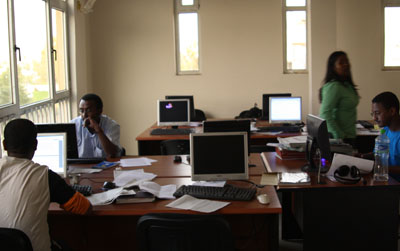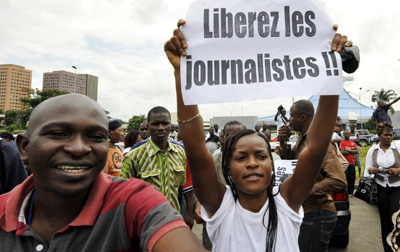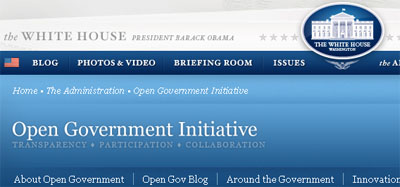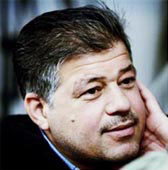
As it backs Assange, Ecuador stifles expression at home
The Quito government’s decision to grant Julian Assange political asylum comes at a time when freedom of expression is under siege in Ecuador. President Rafael Correa’s press freedom record is among the very worst in the Americas, and providing asylum to the WikiLeaks founder won’t change the repressive conditions facing Ecuadoran journalists who want to…
In Ethiopia case, a response to WikiLeaks
Last week, we learned that Ethiopian journalist Argaw Ashine was facing possible arrest and needed to flee the country. During a 10-day period in September, he had been summoned three times by Ethiopian authorities and questioned about a reference to him in a cable sent by the U.S. Embassy in October 2009 and made public…

Ethiopian journalist ID’d in WikiLeaks cable flees country
New York, September 14, 2011–U.S. diplomatic cables disclosed last month by WikiLeaks cited an Ethiopian journalist by name and referred to his unnamed government source, forcing the journalist to flee the country after police interrogated him over the source’s identity, the Committee to Protect Journalists said today. It is the first instance CPJ has confirmed…

Guardian correspondent expelled from Russia
New York, February 8, 2011–The Committee to Protect Journalists called on Russian authorities today to allow Luke Harding, Moscow correspondent for the U.K. Guardian, to return to Russia and resume his work. Harding, at left, was refused entry to Russia on Saturday.The journalist had temporarily returned to London in the fall to report on U.S.…
CPJ urges US not to prosecute Assange
Dear President Obama and Attorney General Holder: We write because of deep concern about reports that you are considering the prosecution of WikiLeaks and Julian Assange for publishing classified cables and other documents. Based on everything we know about these events, we urge you to avoid such action. Our concern flows not from an embrace of Assange’s motives and objectives. Indeed, we wish that he would fully disclose his sources of financing and support. But the Constitution protects the right to publish information of important interest to the public. That right has been upheld through decades of American jurisprudence and has served the people well.
After running leaked cables, websites face harassment
New York, December 10, 2010–The Committee to Protect Journalists condemns harassment of the Lebanese news website Al-Akhbar after it published U.S. diplomatic cables that were first disclosed by WikiLeaks. The website was hacked this week by unknown attackers, while the Tunisian government blocked domestic access to the site. Saudi officials blocked access to the independent…

No Wikileaks, but cocoa piece typifies fight over leaks
WikiLeaks’ publication of tens of thousands of pages of confidential U.S. military documents on the Afghanistan war has drawn a lot of attention, perhaps overshadowing the many, more common cases around the world in which journalists publish stories based on leaked documents. This week, for instance, three journalists in Ivory Coast were found guilty of…

FOIA needs new muscle behind it, not just promises
These are busy days for Freedom of Information. On April 5, the watchdog Web site that knows no borders, WikiLeaks, posted a classified U.S. military video showing U.S. forces firing on Iraqi civilians, killing many, including two Reuters journalists, as well as wounding children. Two days later, the Pentagon posted a redacted U.S. military assessment of the same incident concluding that U.S. troops fired “in accordance…

CPJ seeks Pentagon investigations in Iraq journalist deaths
Dear Secretary Gates: The Committee to Protect Journalists is disturbed by a video recently disclosed by the Web site WikiLeaks showing a U.S. military strike that took place on July 12, 2007. The attack killed an unspecified number of individuals, including Reuters photographer Namir Noor-Eldeen and his assistant, Saeed Chmagh.

Technicalities: 10 Questions on WikiLeaks
Monday’s release of graphic video footage of an attack by the U.S. military on two Reuters journalists vividly depicted the dangers involved in covering a battlefield. It also thrust into the spotlight WikiLeaks, the enigmatic Web site responsible for obtaining, decoding, and publicizing the footage. Here’s 10 questions answered on WikiLeaks, including how it works, its goals, and some…